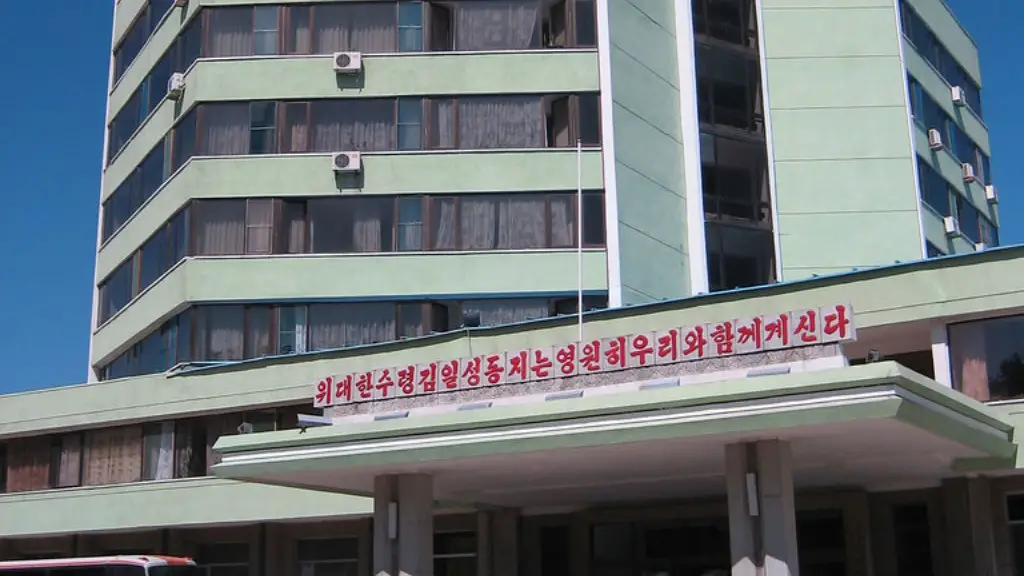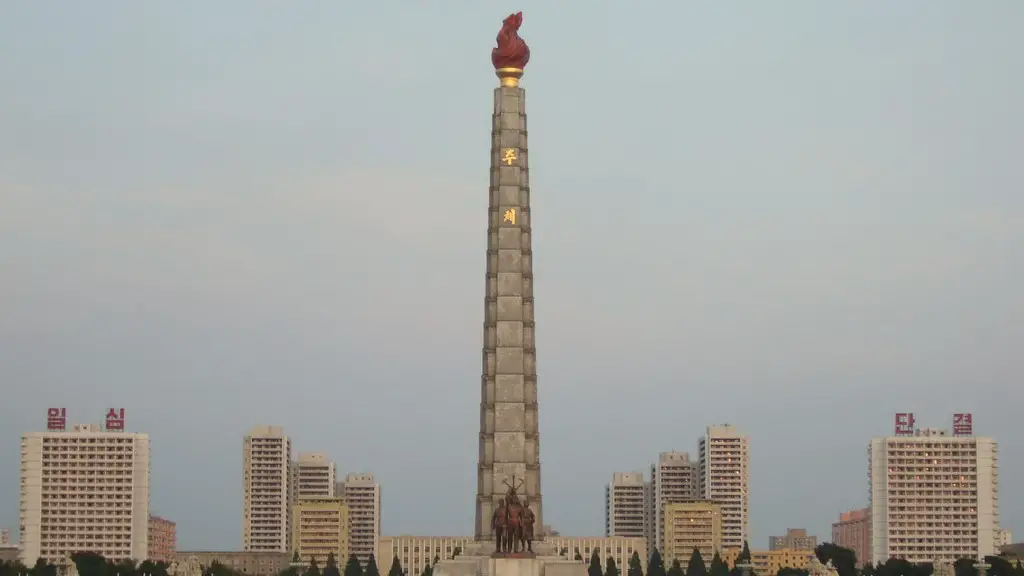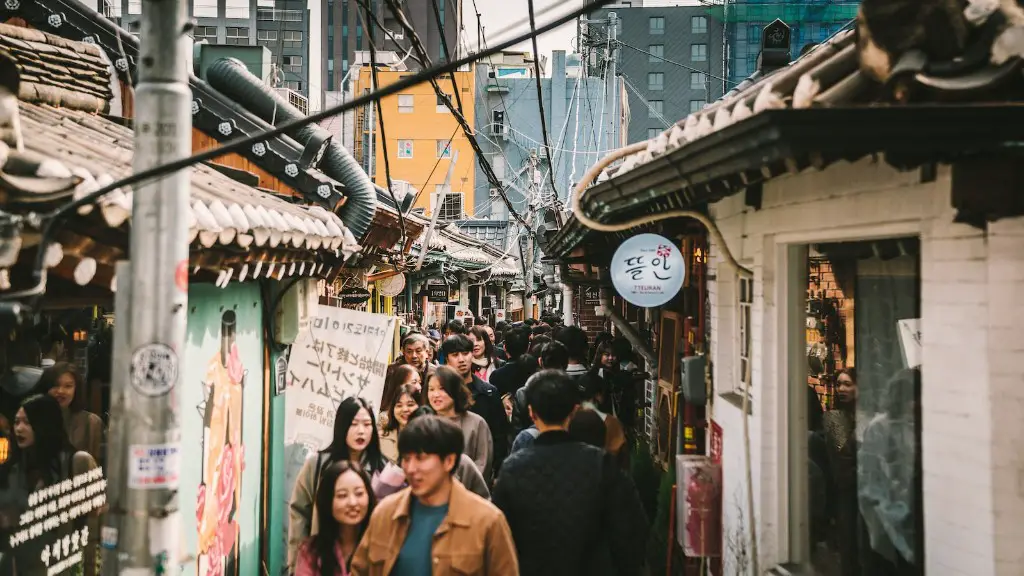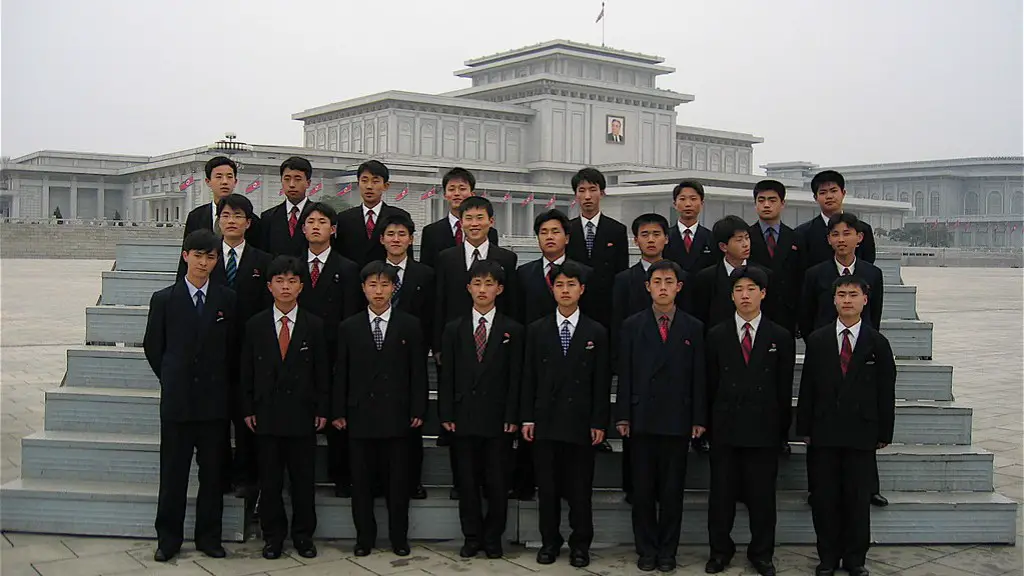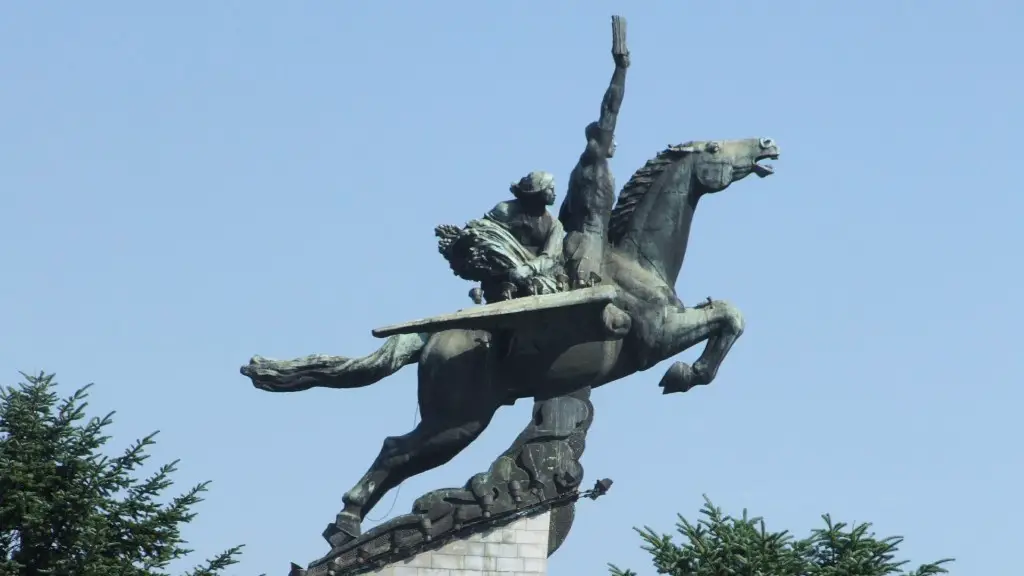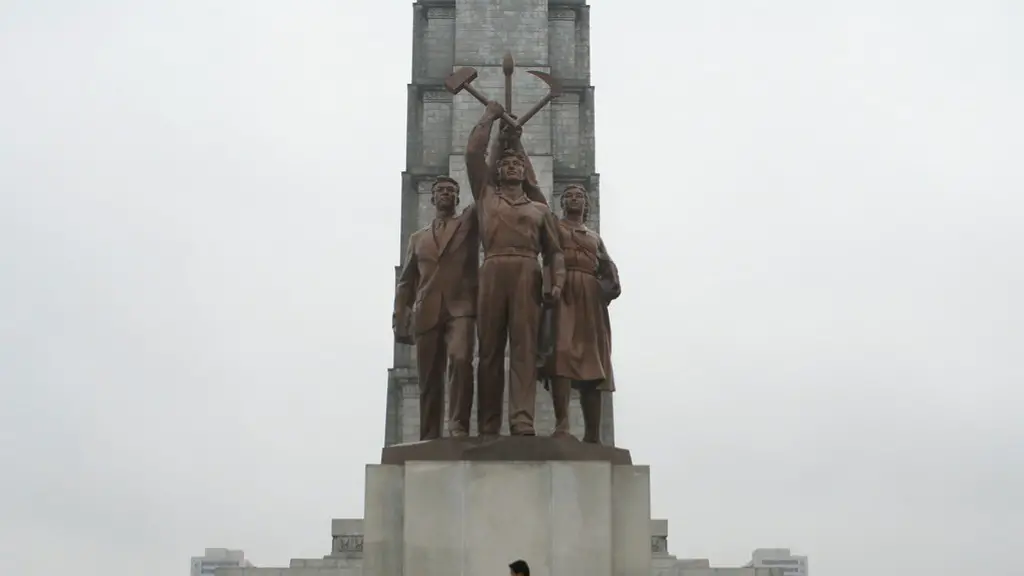Living in North Korea
Living in North Korea can be incredibly difficult with tight government control over much of the population. A heavy-handed regime tries to regulate any kind of information from outside North Korea in order to maintain the status quo. North Koreans suffer from extreme poverty, limited healthcare, tight restrictions on their daily lives, and even executions for those deemed unruly or for engaging in activities that would be considered harmless elsewhere.
In North Korea, there is a hierarchy of power with the Kim family – headed today by Kim Jong-Un – at the top, followed by the upper-level military and political elite. These individuals are heavily monitored and hold considerable sway over the rest of the population. They are able to control almost every aspect of the citizens’ lives, from travel to the media they consume.
North Koreans have limited access to food, with most people eating a diet consisting mostly of rice and kimchi, a spicy Korean side dish of fermented vegetables. With an ineffective government and limited economic opportunities, North Koreans often struggle to provide for their families.
Despite being one of the most isolated countries in the world, North Korea also has one of the highest literacy rates. Education is heavily emphasized, with all citizens required to attend at least six years of school, often becoming fluent in multiple languages such as English, Russian, and Chinese.
North Koreans have a particular set of cultural norms which are actively encouraged by the government. The government actively suppresses any form of dissent or public dissatisfaction, with public displays of grief or unhappiness seen as frowned upon and often met with swift punishment.
In North Korea, almost all forms of communication and media – from magazines to television – are heavily regulated or banned outright. It is illegal to possess media from outside the country, and most North Koreans have limited access to news and information from the outside world.
The government maintains tight control over its population, resulting in one of the most oppressive and authoritarian regimes in the world. Any display of dissent or criticism of the leadership is harshly punished, and even the most basic freedoms are severely restricted.
Government Actions
The North Korean government actively suppresses any forms of dissent or opposition through a variety of methods. The government monitors communication inside and outside of the country, and it curtails the freedom of movement of its citizens with a system of internal exile or imprisonment. North Koreans have reported being subject to torture, public executions, and severe food shortages.
North Korea also practices a strict policy of censorship on its population. Television, radio and newspapers are heavily regulated and anyone found in possession of foreign media is punished severely. North Korean citizens are discouraged from speaking freely and from engaging in any kind of political discourse outside of the government’s narrative.
The regime also exerts its control over the population through a cult of personality. The Kim family is highly revered and any criticism of them is met with swift retribution. It is illegal to possess items displaying an image of any member of the Kim family, and anyone found in possession of such items can be sent to prison.
North Korean citizens who are suspected of being sympathetic to outside influences are arrested and sent to labor camps. In these camps, they are subject to hard labor, torture, and often death.
The government also actively works to control access to food, with citizens often surviving on a diet of rice and kimchi, supplemented by whatever they can grow in their gardens. The regime controls the food distribution system, which leaves many North Koreans hungry and malnourished.
Oppression and Suffering
North Koreans live under constant fear of the government’s oppressive rule. People are discouraged from expressing any discontentment and instead are encouraged to show loyalty and adoration towards the leadership and their policies.
The government employs a variety of tactics to ensure their power remains unchecked, including the use of informers and a network of prison camps. In these camps, prisoners are subject to hard labor, torture, and even death.
Human rights violations are rampant in North Korea, and the government is known to detain and execute people for doing things that would be considered harmless elsewhere. North Koreans have reported being subjected to public executions, torture, and severe food shortages.
Despite the oppression, North Koreans have fought for a better life. In recent years, news from the outside world, has made its way into North Korea, and the population has become increasingly aware of the world outside of their own borders. Citizens are becoming bolder and risking the potential punishments in order to seek out better lives elsewhere.
Organizations such as the United Nations has been critical of the North Korean government, calling for an end to the human rights violations and for freedom of expression and thought. Despite international condemnation, the North Korean government continues to oppress its citizens with little sign of change in the near future.
Economic Challenges
The North Korean economy is highly centralized, with the state controlling most aspects of production and distribution. Despite supposedly being a socialist state, North Korean citizens are heavily reliant on private markets in order to survive. With government-sanctioned rations often scarce or non-existent, North Koreans have turned to a flourishing black market in order to purchase food.
North Korea’s economy is stagnant, largely due to international sanctions and the lack of investment from foreign countries. This has left North Koreans struggling to provide for their families. The average North Korean lives on about $1 a day, meaning the population is struggling with extreme levels of poverty and food insecurity.
The government has tried to reinvigorate the economy, primarily through foreign investments. However, the lack of freedoms in North Korea and the oppressive nature of the regime has made it difficult to attract investors. Despite the government’s efforts, much of the population still lives in abject poverty and struggle with daily issues of survival.
North Korea is also isolated from international markets, meaning that goods are often hard to come by and expensive. Power cuts are common, and fuel shortages are rampant. These issues are further compounded by an inefficient bureaucracy, stifling regulations, and rampant corruption.
The North Korean economy has seen some improvements in recent years due to the government’s economic reforms. These reforms have allowed for limited foreign investment as well as the expansion of the black market. However, it remains to be seen if these reforms are enough to lift North Korea’s population out of poverty.
Cultural Norms
North Koreans have developed specific cultural norms over the years which are heavily policed and monitored by the government. Public displays of grief or unhappiness are strongly discouraged, as the government believes that such behavior is indicative of disloyalty.
The government also maintains strict rules regarding the media consumed by its citizens. It is illegal to possess any media from outside the country, and most North Koreans have little knowledge of the outside world.
Despite the strictness, North Koreans do engage in a variety of cultural activities. Music and theatre are popular, though these activities are heavily restricted and regulated by the government. These restrictions often hinder creativity, limiting the range of performances and art and leaving North Koreans with only a limited outlet to express their creativity.
Sports are also quite popular in North Korea, with football and taekwondo being among the most popular. North Korea routinely performs well in international sporting events, earning medals and boosting the national pride of its citizens.
The North Korean government has managed to suppress its population to an extent where most North Koreans have little knowledge or awareness of international events and issues. However, with increased access to the outside world, North Koreans have been able to gain a better understanding of their own society and the world at large.
International Relations
North Korea has had a contentious relationship with much of the international community due to its oppressive regime and the human rights abuses suffered by its citizens. The United States in particular has had a strained relationship with North Korea, due to the latter’s pursuit of nuclear weapons, as well as its refusal to change its human rights policies.
The United Nations has been highly critical of North Korea. UN resolutions have called for an end to the human rights violations and have demanded North Korea open up its borders and allow for the free flow of information. However, the North Korean government has continued to ignore these demands, showing no sign of changing its stance on these matters.
In recent years, North Korea has embarked upon a campaign of diplomacy and rapprochement with some of its neighbors such as South Korea and Japan. The two countries have had limited discussions, though most of the negotiations have been focused on security and denuclearization.
Despite the advances in diplomacy, North Korea has been accused of engaging in hostile activities such as cyber attacks, nuclear testing, and the pursuit of nuclear weapons. North Korea has also been sanctioned by the United Nations on multiple occasions, in an effort to pressure the regime to change its policies.
It remains to be seen if North Korea will continue its current path of improved international relations or if it will regress to its previous stance of hostility and aggression.
